Warehouse Closed On July 4th
A Bit of Boro Background
A Bit of Boro Background
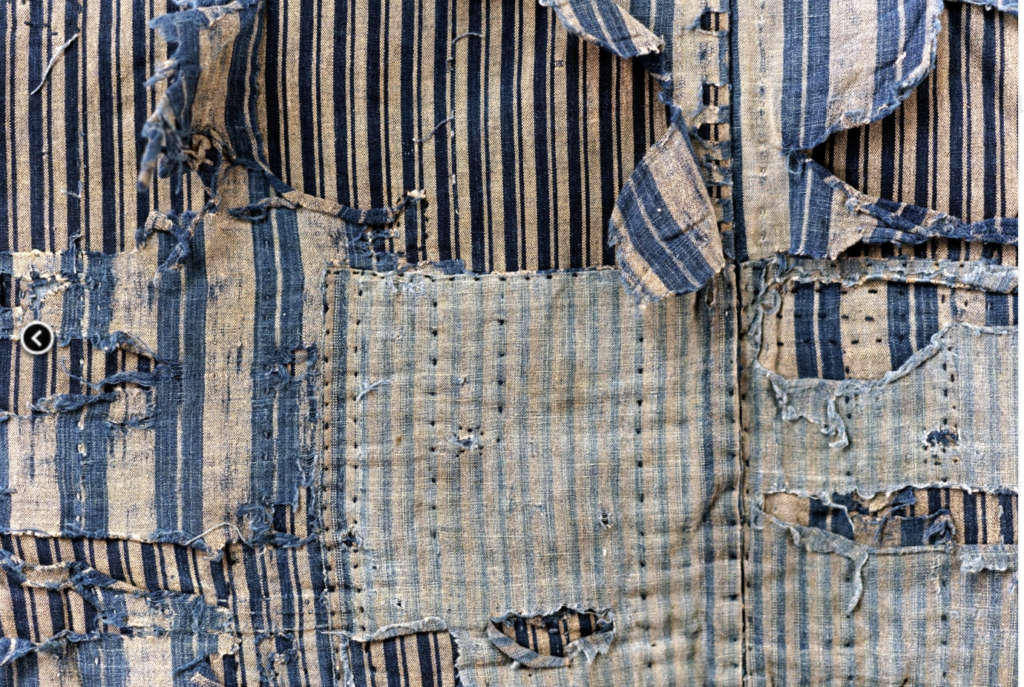
“Tattered.” “Broken.” Hardly words of inspiration. But a new line of Moda fabrics honors the Japanese tradition of boro—the Japanese technique of creating beautiful textiles through repeated mending—and gives quilters the opportunity to create beauty of their own.
The tradition of boro can be traced to the snowy north of the island of Honshu, an area associated with significant poverty, according to the Amuse Museum in Tokyo.
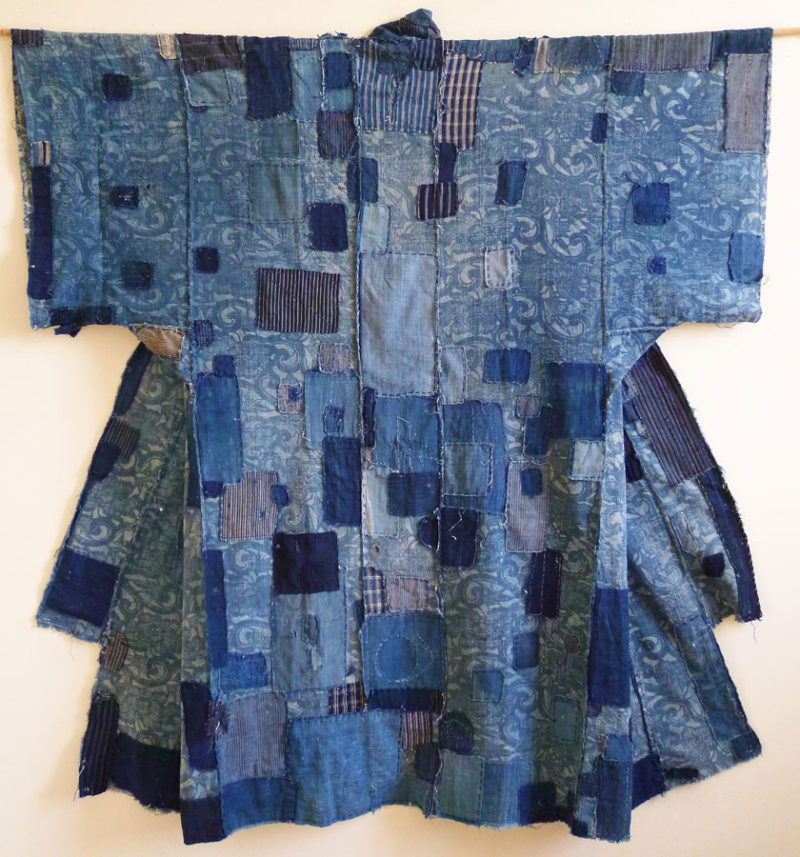
Cotton was precious because it was too far north for it to grow, and many residents made do with scratchy hemp cloth they wove themselves. No piece of fabric—cotton or hemp—went to waste, and bits and pieces were saved and stitched over holes in clothing, futon covers, and other fabric items used by workers and families. A bit of hemp or other fiber was sometimes stuffed under a patch on a piece of clothing for warmth.
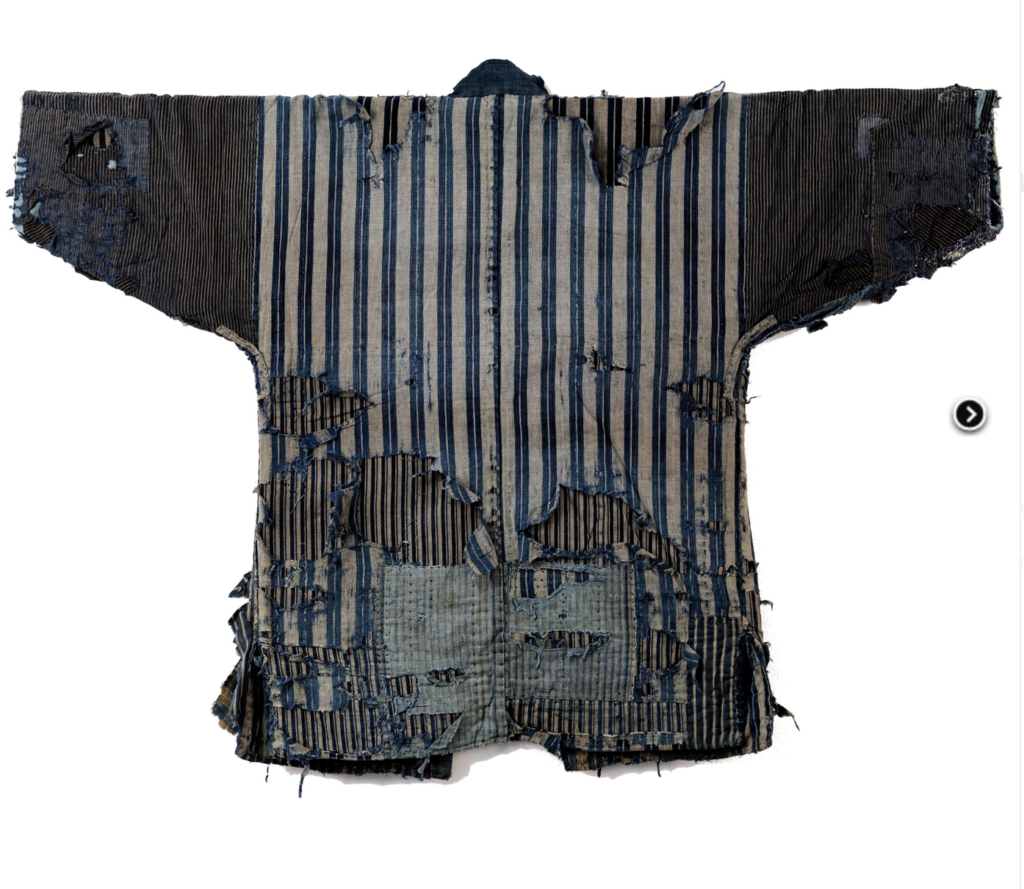
These bits and pieces were typically attached with visible running stitches to strengthen and reinforce the patches, and garments often had multiple patches and areas of stitching. Because fabric was time-consuming to produce and expensive to buy, these items might be handed down from one generation to the next. Though their intent was functional, Boro textiles ultimately achieved recognition for their wabi sabi—beauty in imperfection. The multiple hues and textures of fabric placed wherever a hole appeared, along with the prominent stitching, created a whole greater than the sum of its parts.
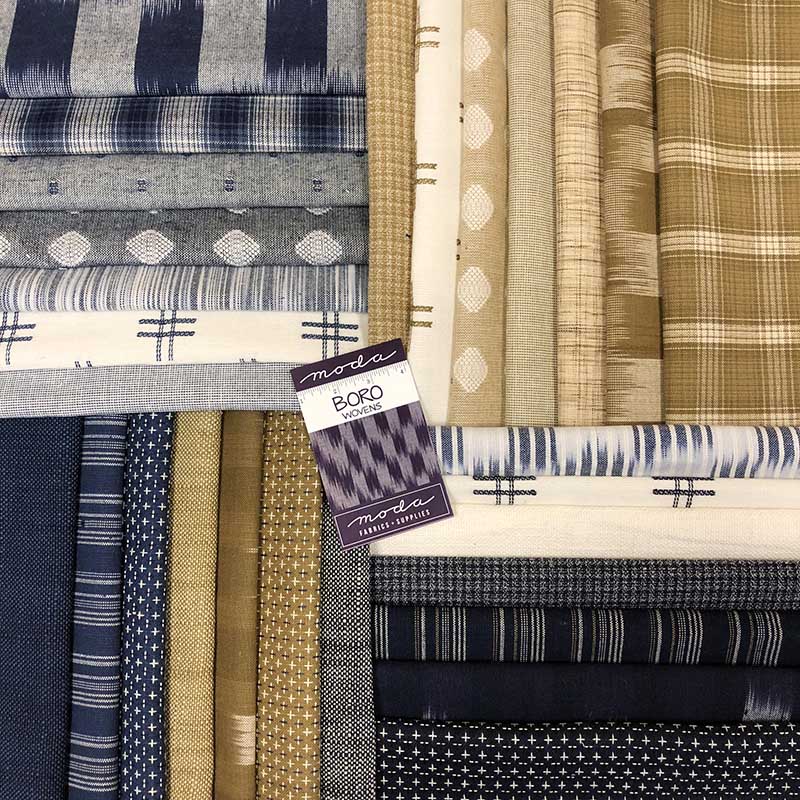
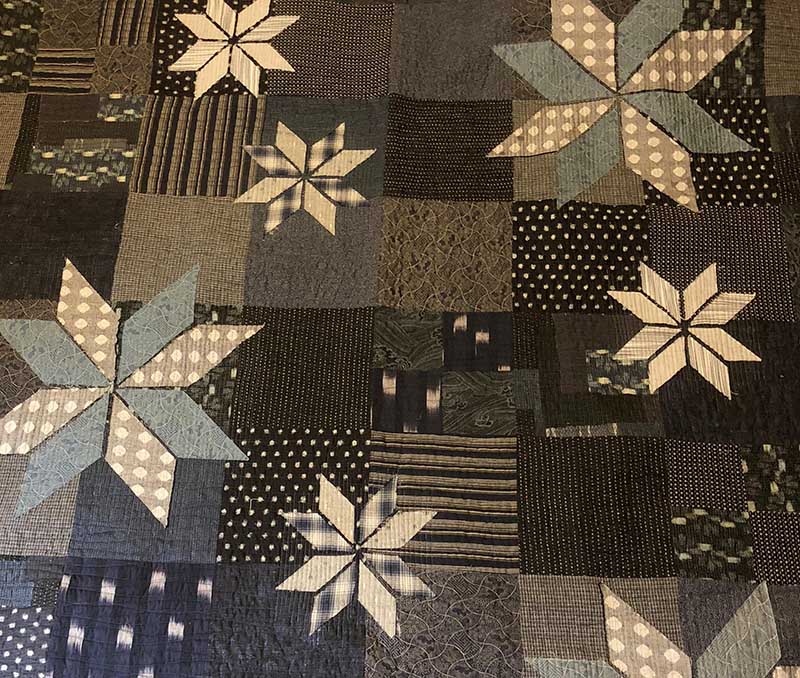
Perhaps because it was once a symbol of poverty it took a long while for boro’s beauty to be appreciated, but today it’s taken the textile world by storm. Aficionados appreciate its subtle unplanned beauty and collectors seek it out. The rise in popularity of visible mending speaks to an appreciation for repurposing, recycling, and seeing the hand of the maker in a finished project. Even high-end fashion designers find inspiration in Boro. Louis Vuitton featured boro jackets in his 2013 spring menswear collection and numerous models in the 2015 Junya Watanabe spring fashion show strode the runway in boro shirts, pants, and jackets.
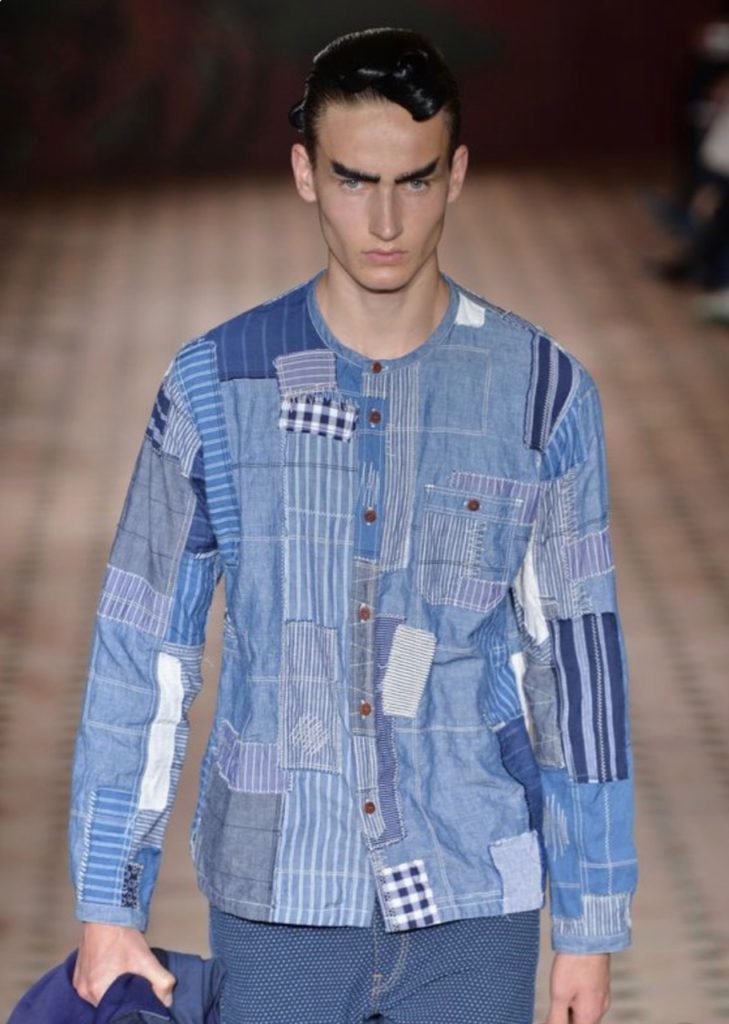
If your partner’s not up for a high-fashion boro jacket, there are plenty of other ways Moda’s lovely new line can find its way into your life—bags, aprons, backpacks, napkins and table runners, and of course, quilts.

What ideas do you have for using Boro?

Comments